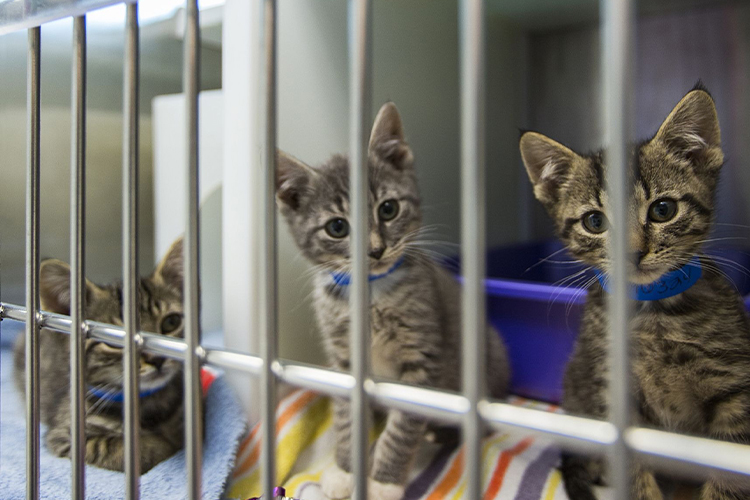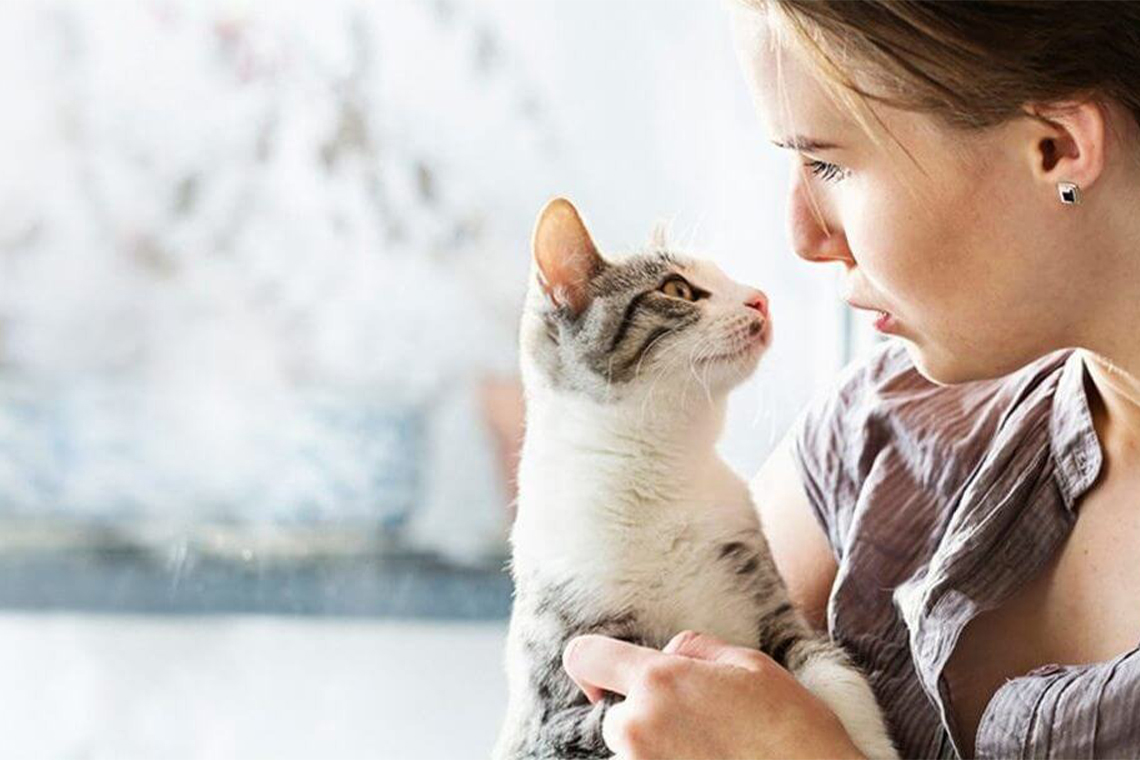Adopting a new cat can be an exciting and rewarding experience, but it’s important to make sure you are prepared for the responsibility of caring for a pet. Before you bring home a new feline friend, there are a few things you should consider to ensure that you and your new cat are a good match.
Personality:
Just like people, cats have their own unique personalities. Some cats are outgoing and friendly, while others are more reserved and independent. Spend time with the cat before you adopt them to see if their personality matches your own.

Health:
It’s important to ensure that the cat you adopt is healthy. Ask for their medical history and make sure they have been vaccinated and spayed or neutered. If the cat has any ongoing medical issues, make sure you are prepared to provide the care they need.
Living Arrangements:
Consider the living arrangements you have for the cat. Do you have enough space for them to play and explore? Will they have access to a safe outdoor space or will they be strictly indoors? Make sure you have the appropriate resources and equipment for the cat’s needs.
Other Pets:
If you have other pets, it’s important to consider how they will react to a new cat. Introducing cats to each other can take time and patience, so make sure you are prepared to take the necessary steps to ensure a smooth introduction.
Time and Commitment:
Owning a cat requires time and commitment. Make sure you are prepared to provide daily care, including feeding, grooming, and cleaning the litter box. Additionally, cats can live for up to 20 years, so make sure you are prepared for a long-term commitment.
Adoption Process:
Finally, make sure you are adopting from a reputable organization or shelter. Ask questions about the cat’s history and personality and make sure you understand the adoption process and any fees involved.
Activity level:
Consider your own activity level and choose a cat with a similar energy level. Some cats are more active and playful, while others prefer to lounge and relax. If you’re looking for a companion to cuddle up with, a more laid-back cat might be a better fit.

Coat type:
Different cat breeds have different coat types that require varying levels of grooming. Long-haired cats, for example, will require more regular brushing to avoid matting and tangles. Short-haired cats may require less grooming, but still benefit from occasional brushing to remove loose fur and reduce hairballs.
Allergies:
If you or someone in your household has allergies, make sure you choose a cat breed that is hypoallergenic. Some breeds produce less of the protein in their saliva and skin that causes allergic reactions in people.
Training:
If you want a cat that can perform certain behaviors or tricks, consider adopting a younger cat or kitten that can be trained. Older cats may have already developed their own habits and be less receptive to training.
Personality match:
It’s important to consider how your own personality and lifestyle will match with the cat’s personality. If you’re a more introverted person who likes to relax at home, a shy, independent cat might be a better fit. If you’re more outgoing and enjoy playing with your pet, a more playful and social cat might be a better match.
Cost:
Before adopting a cat, consider the costs associated with owning a pet. This includes the cost of food, litter, toys, veterinary care, and unexpected expenses. Make sure you can afford the financial responsibility of owning a cat before making the decision to adopt.
Time commitment:
Cats are social animals and require daily interaction and playtime to stay mentally and physically stimulated. Make sure you have enough time in your schedule to spend with your cat and provide them with the attention they need.
Housing rules:
If you rent your home, make sure your landlord allows pets before adopting a cat. Some rental properties have restrictions on the number or type of pets allowed, and may require additional fees or deposits.

Children:
If you have children, consider how they will interact with the cat. It’s important to teach children how to properly handle and care for a pet, and to supervise interactions between young children and pets to prevent accidents.
Time commitment:
Cats are social animals and require daily interaction and playtime to stay mentally and physically stimulated. Make sure you have enough time in your schedule to spend with your cat and provide them with the attention they need.
Breed characteristics:
Different cat breeds have different temperaments and characteristics. For example, Siamese cats are known for being vocal and active, while Persian cats are more laid back and independent. Research different breeds to find one that fits your lifestyle and personality.
Health history:
Ask about the cat’s health history before adopting. Make sure the cat is up-to-date on vaccinations and has been spayed or neutered. If the cat has a pre-existing medical condition, make sure you understand the potential costs and care required to manage the condition.
Compatibility with other pets:
If you have other pets, consider how the new cat will fit in with your existing animals. It’s important to introduce new pets slowly and supervise interactions to prevent any aggression or territorial behavior.

Adoption process:
Research the adoption process at your local animal shelter or rescue organization. Some organizations may require an application and home visit before approving an adoption, while others may have different requirements. Make sure you understand the process and are prepared to meet all the requirements.
Long-term commitment:
Adopting a cat is a long-term commitment. Cats can live for 15-20 years, so make sure you are prepared to provide a loving home for the cat for their entire lifespan.
Personality traits:
Observe the cat’s personality traits before adopting. Look for a cat that is friendly and social, but also has a personality that fits with your lifestyle. For example, if you work long hours, a more independent cat might be a better fit.
Age:
Consider the age of the cat you want to adopt. Kittens are typically more energetic and require more attention and training, while older cats may be more mellow and independent. Adopting an older cat can be a great option for people who want a more low-key companion.
Adoption fees:
Adoption fees vary between animal shelters and rescue organizations. While some may charge a nominal fee, others may charge several hundred dollars. Make sure you understand the adoption fees and what they cover before adopting.
Lifestyle changes:
Consider how your lifestyle may change in the future and how it will affect your ability to care for your cat. For example, if you are planning to move or have a child, make sure you will still be able to provide a loving home for your cat.
Time of year:
The time of year you adopt a cat can also affect your ability to care for them. For example, if you adopt a long-haired cat in the summer, they may need more frequent grooming to prevent matting and tangles.
Personal preferences:
Ultimately, choosing a cat is a personal decision. Consider your own preferences when it comes to color, size, and breed, but also keep in mind that personality and compatibility are the most important factors when adopting a new feline friend.
By considering these additional factors, you can ensure that you find the right cat to fit your lifestyle and personality. Remember, adopting a cat is a big responsibility, but it can also be incredibly rewarding. With the right match, you and your new feline friend can form a loving bond that will last for years to come.












